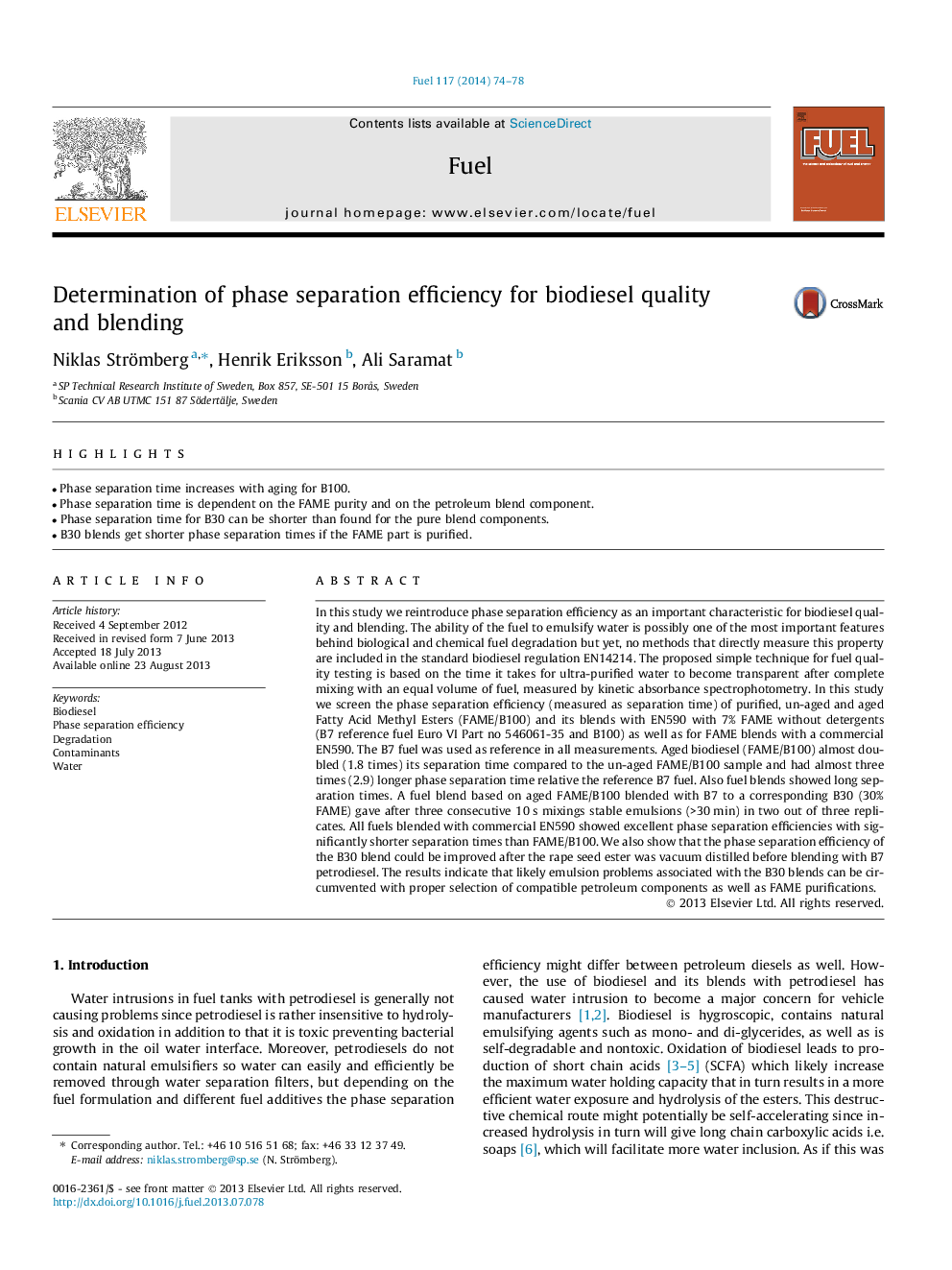| Article ID | Journal | Published Year | Pages | File Type |
|---|---|---|---|---|
| 10271895 | Fuel | 2014 | 5 Pages |
Abstract
In this study we reintroduce phase separation efficiency as an important characteristic for biodiesel quality and blending. The ability of the fuel to emulsify water is possibly one of the most important features behind biological and chemical fuel degradation but yet, no methods that directly measure this property are included in the standard biodiesel regulation EN14214. The proposed simple technique for fuel quality testing is based on the time it takes for ultra-purified water to become transparent after complete mixing with an equal volume of fuel, measured by kinetic absorbance spectrophotometry. In this study we screen the phase separation efficiency (measured as separation time) of purified, un-aged and aged Fatty Acid Methyl Esters (FAME/B100) and its blends with EN590 with 7% FAME without detergents (B7 reference fuel Euro VI Part no 546061-35 and B100) as well as for FAME blends with a commercial EN590. The B7 fuel was used as reference in all measurements. Aged biodiesel (FAME/B100) almost doubled (1.8 times) its separation time compared to the un-aged FAME/B100 sample and had almost three times (2.9) longer phase separation time relative the reference B7 fuel. Also fuel blends showed long separation times. A fuel blend based on aged FAME/B100 blended with B7 to a corresponding B30 (30% FAME) gave after three consecutive 10Â s mixings stable emulsions (>30Â min) in two out of three replicates. All fuels blended with commercial EN590 showed excellent phase separation efficiencies with significantly shorter separation times than FAME/B100. We also show that the phase separation efficiency of the B30 blend could be improved after the rape seed ester was vacuum distilled before blending with B7 petrodiesel. The results indicate that likely emulsion problems associated with the B30 blends can be circumvented with proper selection of compatible petroleum components as well as FAME purifications.
Related Topics
Physical Sciences and Engineering
Chemical Engineering
Chemical Engineering (General)
Authors
Niklas Strömberg, Henrik Eriksson, Ali Saramat,
